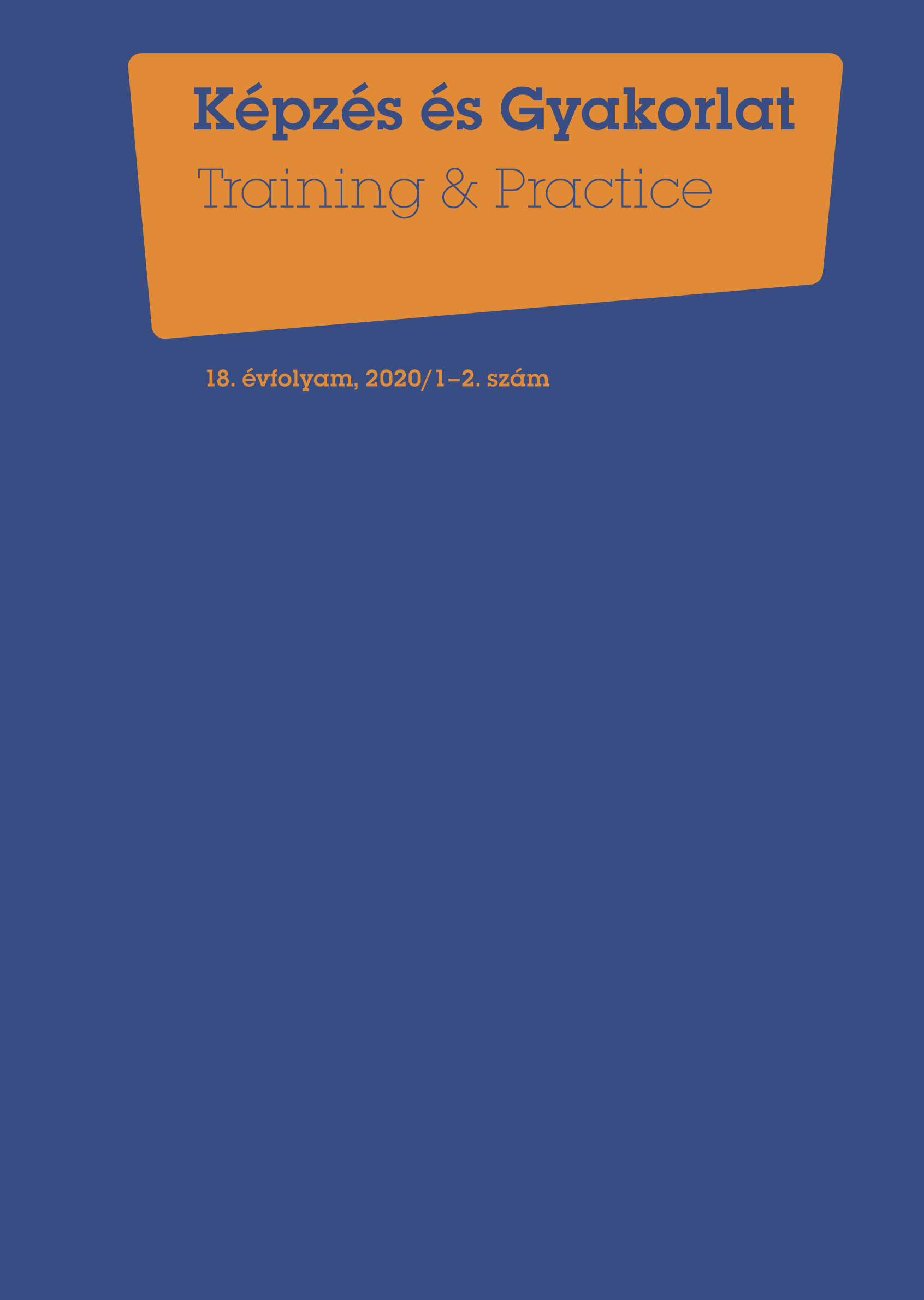Early childhood neuropedagogy – assistance of early childhood brain development in preschool care
DOI:
https://doi.org/10.17165/TP.2020.1-2.13Abstract
In agreement with the spirit of the era teachers and experts with a vocation need to make an attempt to develop and continually improve their existing expertise in order to increase the efficiency of education and care. It is a well-known fact that preschool years mean the most sensitive period to establish and deepen the competences supporting life-long learning. With regard to the development and maturation of the nervous system the supporting environment, the motivating educational activities create favourable conditions for the learning process of small children. All this helps to build the neural links, to intensify the nervous paths. The main direction of the micro research presented in the study was appointed by important questions to be resolved, that is what level of neuropedagogical expertise kindergarten teachers possess and how and to what extent they use their knowledge in this field to support early childhood brain development.
References
Bauer, J. (2010). Miért érzem azt, amit te? Ösztönös kommunikáció és tükörneuronok titka. Budapest: Ursus Libris Kiadó.
Demeter, K. (szerk., 2006). A kompetencia. Kihívások és értelmezések. Budapest: Országos Közoktatási Intézet.
Doidge, N. (2015). A változó agy. Elképesztő történetek az agykutatás élvonalából. Budapest: Park Könyvkiadó.
Fraiberg, S. (2014). Varázsos évek. Hogyan értsük meg és miként kezeljük a korai gyermekkor problémáit. Budapest: Park Könyvkiadó.
Hanson, R. (2016). Sírjak vagy nevessek? Az emberi agy boldogságra hangolható. Budapest: Ursus Libris Kiadó.
Markham, L. (2016). Békés szülő, boldog gyermek. A kiabálás vége és a kapcsolatteremtés kezdete. Budapest: Ursus Libris Kiadó.
Polster, H. R. – Hüther, G. (2017). Vissza a gyökerekhez. Így fejlődnek ezek a mai gyerekek. Budapest: Ursus Libris Kiadó.
Porkolábné, B. K. (szerk., 2009). Komplex prevenciós óvodai program. Kudarc nélkül az iskolában. Budapest: Trefort Kiadó.
Siegel, D. – Bryson, T. (2015). Drámamentes fegyelmezés. A káosz lecsillapítása és a fejlődő gyermeki elme integrált szemléletű gondozása. Budapest: Ursus Libris Kiadó.
Varga, L. (2015). Új tudomány születőben: kisgyermekkori neuropedagógia. In: Juhász, Gy. – Nagy, Á. – Strédl, T. – Tóth-Bakos, A. (szerk.), A Selye János Egyetem 2015-ös „Innováció és kreativitás az oktatásban és a tudományban” Nemzetközi Tudományos Konferenci ájának tanulmánykötete, (pp. 11–18). Komárom: Selye János Egyetem.
Varga, L. (2018). Előszó. Képzés és gyakorlat, 16. évf. 3. sz. pp. 7–12. DOI: https://doi.org/10.17165/TP.2018.3.1
Downloads
Published
Issue
Section
License
Copyright (c) 2020 Borbás Mónika Lívia

This work is licensed under a Creative Commons Attribution-NonCommercial-NoDerivatives 4.0 International License.












